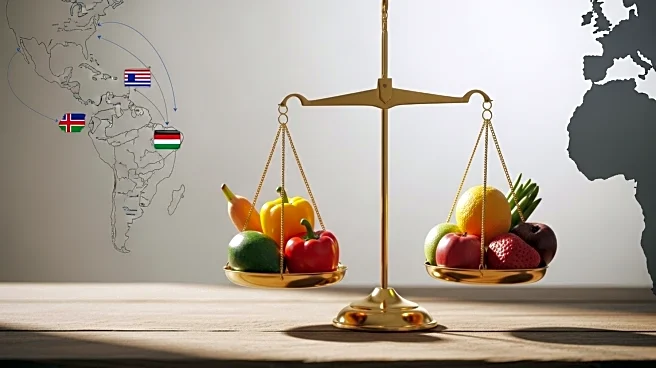What is the story about?
What's Happening?
The imposition of U.S. tariffs is reshaping global agricultural trade flows, affecting products like beef, grains, and oilseeds. Higher tariffs on Brazilian beef are prompting increased shipments to the U.S. from countries like Mexico and Australia, while Brazil seeks alternative markets. For grains and oilseeds, Southeast Asian nations are set to increase purchases from the U.S., displacing supplies from Australia, Canada, and Russia. These changes are driven by new U.S. trade deals and the need for countries to adapt to shifting trade dynamics.
Why It's Important?
The U.S. tariffs are causing significant shifts in global agricultural trade, impacting supply chains and market access for various countries. As Brazil and other nations seek new markets, the U.S. may see increased demand for its agricultural products, potentially benefiting American farmers. However, these changes could also lead to increased competition and price volatility in global markets. The situation highlights the interconnectedness of global trade and the potential consequences of protectionist policies on international supply chains.
What's Next?
As countries adjust to the new trade landscape, there may be further realignments in global agricultural markets. The U.S. could strengthen its position as a key supplier to Southeast Asia, while Brazil and other affected nations explore new trade partnerships. The evolving trade dynamics may also prompt countries to invest in domestic production and supply chain resilience to mitigate future disruptions. The long-term impact of these changes will depend on the ability of countries to adapt and capitalize on new opportunities in the global market.
















